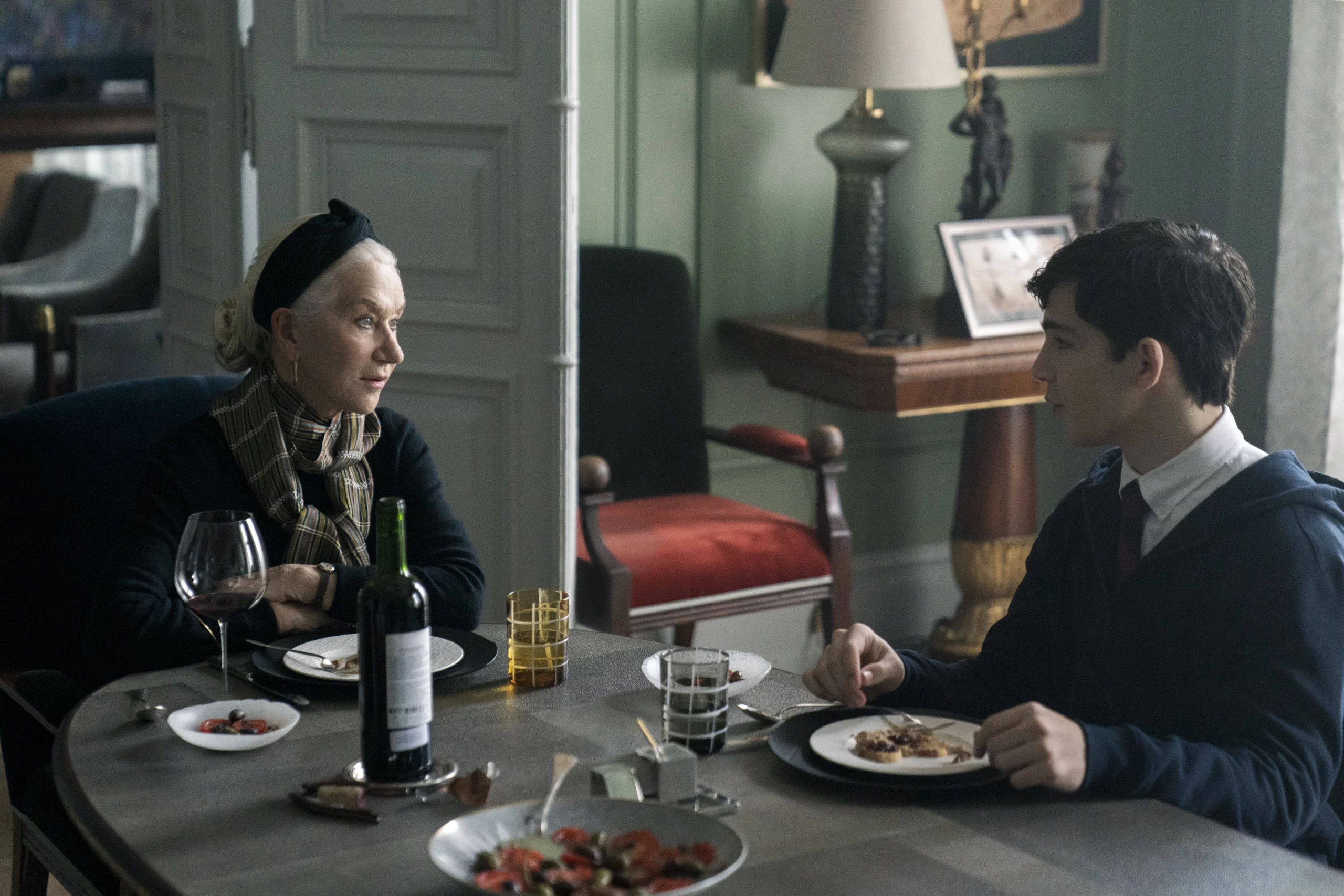Film Review: White Bird
Film
White Bird
Director: Marc Forster
Participant and Kingdom Story Company
In Theaters: 10.04
The summer movie season is often flooded with movies that are good enough when judged by the standard of sequels, but often aren’t truly good films in their own right. This fall brings us a strange anomaly in White Bird, the follow up to the 2017 hit Wonder, which has the distinction of being a genuinely good movie, but a poor sequel.
Julian Albans (Bryce Gheisar, The Astronauts)—the bully who was expelled from for bullying classmate Augie Pullman in Wonder—is adjusting to a new school, and all he seems to have really learned from his previous explanation is to try to stay out of trouble. When he is visited by his grandmother, Sara (Academy Award-winner Helen Mirren, The Queen), she tells him a story about her youth in Nazi-occupied France. As a young Jewish girl in 1942, Sara (Ariella Glaser, Radioactive) evaded capture by German troops with the help of a classmate, Julien Beaumier (Orlando Schwerdt, True History of the Kelly Gang), who has lost the use of one of his legs due to polio, and hid Sara in his family’s barn for over a year with the knowledge of his parents, Jean Paul (Jo Stone-Fewings) and Vivienne (Gillian Anderson, The X-Files, The Crown). Though Sara, who was concerned with her social status, didn’t even bother to learn Julien’s name at school, where he was bullied by the other classmates, Julien forgives her thoughtlessness and a a close friendship blossoms, eventually turning into a lifelong unbreakable bond as Sara discovers the true nature of love, courage and sacrifice.
The connection to Wonder comes only in the wraparound sequences, which would be the weakest element of this film even if Gheisar wasn’t clearly a good three to four years older than he was last time we saw the character. It’s an intrusive gimmick that author R.J. Palacio used to sell the book, which is now being used to sell the movie. While those who go into the film expecting a true sequel will be more than disappointed, the crux of the film is on the story of young Sara’s survival and her first romance, and the framing device is kept general enough that the story is completely accessible to viewers who have never even heard of Wonder. As a young adult romantic melodrama set against the backdrop of the Holocaust, White Bird is involving enough to keep the audience engaged, and young people especially will find it gripping, suspenseful and emotionally rich, even if it is just a tiny bit corny at times (a sequence involving CGI forest animals coming to Sara’s rescue works better than it could have, but definitely loses the reality of the moment). The beautiful cinematography by Matthias Koenigswieser (A Man Called Otto, Christopher Robin) and especially the sumptuous orchestral score by the great Thomas Newman (American Beauty, Finding Nemo) is more than enough to make it satisfying moviegoing.
The cast is reliable, with young Ariella Glaser shining in the lead role of Sara, keeping the character believable enough to be real while adding just enough glamorous, girl-next-door teen appeal to effectively sell it to the target audience.
Schwerdt is quite lovable as the flashback Julien with an e, and it’s hard not to be won over by these very charming young people and feel invested in their tragic love story in a Titanic sort of way, albeit younger and far less sexualized, though the comparison is still inescapable. Mirren is is the Gloria Stuart version of Rose, and instead of Bill Paxton and his crew, she has a self-absorbed grandson. Anderson brings her considerable presence to the role of Vivienne, and her interplay with Glaser makes for some of the film’s most touching scenes.
White Bird is a schmaltzy pop melodrama that is made with enough skill and features enough positive messages about empathy, tolerance and the importance of doing what’s right than merely not doing what’s wrong, that it earns a strong recommendation as a film a movie for tweens and their parents, though plenty of adults will be able to enjoy it on their own as well. It’s a shame that it had to be packaged in such a manipulative way, but what’s inside the package is just satisfying enough to forgive the misdirection. –Patrick Gibbs
Read more film reviews:
Film Review: Megalopolis
Film Review: Wolfs
